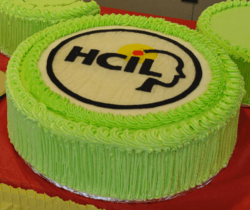University of Maryland Human–Computer Interaction Lab
The Human–Computer Interaction Lab (HCIL) at the University of Maryland, College Park is one of the oldest and longest running HCI labs in the world. Founded in 1983 by Ben Shneiderman, HCIL designs, implements, and evaluates new computer interface technologies, and develops user interfaces and design methods. Primary activities include collaborative research, publication and the sponsorship of open houses, workshops and symposia.

The HCIL is an interdisciplinary lab with faculty and students from Information Studies, Computer Science, Education, English, Business, and Psychology. Current work includes new approaches to information visualization, interfaces for digital libraries, multimedia resources for learning communities, and zooming user interface (ZUIs). HCIL pioneered technology design methods with and for children, mobile and pen-based computing, and instruments for evaluating user interface technologies. Its projects are showcased at the annual Human-Computer Interaction Lab Symposium.[1]
As of 2018, the lab is directed by Niklas Elmqvist.[2] Its previous directors are Ben Shneiderman (1983-2000), Ben Bederson (2000-2006), Allison Druin (2006–2011), Jen Golbeck (2011-2015), Mona Leigh Guha (interim director 2015), and June Ahn[3] (2015-2016).[4]
Contributions
Early research contributions were on hypertext and hyperlinking. HCIL researchers developed high-precision touchscreen applications, including small keyboards that are now widely used on smartphones. Early information visualization research on dynamic queries led to the commercial Spotfire product and the treemapping strategies.
Later contributions included research on designing technology for children, network analysis and visualization using NodeXL, and event analytics[5] for electronic patient histories.
Collaborators and members
HCIL collaborates with other departments, centers and labs on campus. It hosts academic and industrial visitors, and works closely with project sponsors.[6]
Notable current and former members
- Ben Shneiderman, founding director and outreach, ACM CHI Academy member, ACM Fellow, member of the National Academy of Engineering
- Kent Norman, founding member, Directory of the Laboratory for Automation Psychology
- Jenny Preece, lab member, ACM CHI Academy member, former Dean of the College of Information Studies at the University of Maryland
- Ben Bederson, lab member, ACM CHI Academy member, known for foundational work in zoomable interfaces
- Allison Druin, lab member, ACM CHI Academy member, ACM CHI Social Impact Award winner, known for foundational work in participatory design with children and designing interactive technology for and with children, former lab director
- Catherine Plaisant, associate director, ACM CHI Academy member, senior research scientist
- Jen Golbeck, lab member, former lab director
- Don Hopkins,[7] former student and pie menu creator
- Gary Marchionini, former lab member (now at University of North Carolina Chapel Hill, since 1998)
